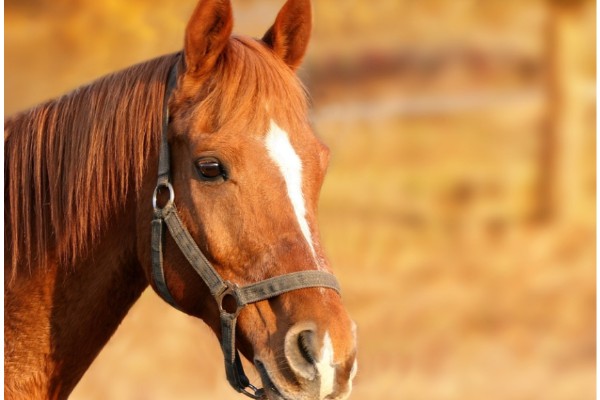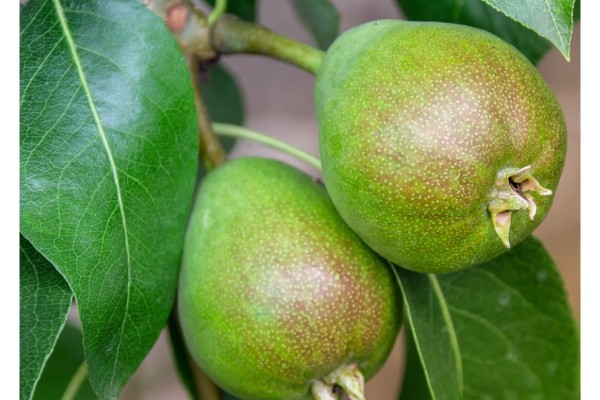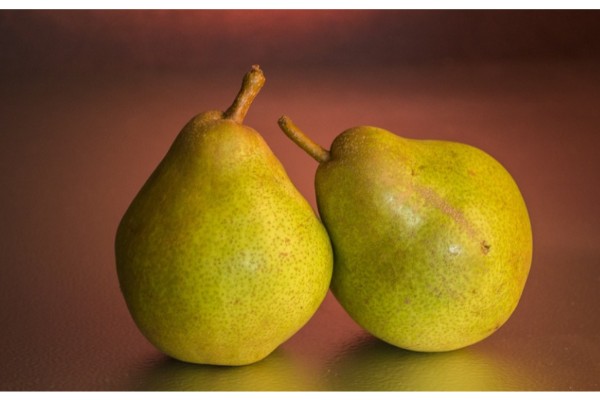Yes, horses can eat pears. Pears are a great treat for horses and are very healthy for them. Pears should only be given to horses in moderation and with safety precautions, just like any other treat. If fed improperly or in excess, pears can be harmful to horses.
However, Amygdalin, a substance found in pear seeds, can cause the stomach to release cyanide. In large doses, cyanide is poisonous to both humans and animals.
It will take quite a few pear seeds to make your animal ill, so it’s better not to take the chance.
Before giving pears to horses, always remove the seeds and stem.
Remember that cyanide is present in the seeds of other fruits besides pears. Additionally potentially harmful to animals are apple seeds, cherry pits, apricot pits, and peach pits.
Table of Contents
The Advantages Of Pears For Horses
Pears are not only tasty and sweet, but they are also very healthy for both people and horses. How about we take a look at them?
High In Fiber
Because of their high fiber content, pears are excellent for the gut and digestive systems. However, pear’s high pectin content is their most significant nutritional asset.
Pectin supports your horse’s digestion in several ways:
- Slows down digestion
- Allows horses to absorb nutrients from their food better
- Forms a protective barrier over the stomach lining and reduces the likelihood of stomach ulcers
Full Of Vitamins And Minerals
In terms of vitamins B6, C, and E, pears are a fantastic source. Additionally, they are abundant in copper, potassium, and folate. But why are these so crucial for horses?
While vitamin C is a potent antioxidant, vitamin E is necessary for maintaining healthy neuromuscular functions. It defends cells against free radicals and oxidative stress.
Vitamin B6 controls metabolic processes and aids in the production of hormones, normal blood sugar levels, and the growth of muscles.
Additionally supporting all metabolic processes and essential for a robust immune system is copper and potassium.
Support Hydration
One of the fruits with a high water content is the pear, which contains over 80% water.
As a result, pears make a great cooling snack for horses.

Are Pears Safe for Horses?
Pears are a safe treat for horses, as was previously stated. They are not among the toxic nightshade fruits and vegetables like tomatoes, potatoes, or paper.
However, there are a few things to consider before feeding pears to your horse.
Pesticides/chemicals
It’s possible that the pears you purchase at the market have been sprayed with pesticides. Both people and horses may be at risk from these.
In addition, bacteria and dirt that collect on the pear’s rind can harm your horse’s digestion.
The pears should be thoroughly washed before being fed to your horse to minimize risk.
Choking Hazard
Contrary to popular belief, horses can choke on dry food much more easily. Horses who choke can develop inhalation pneumonia and suffer severe esophageal damage.
A horse that chokes needs emergency medical attention right away. Choking can lead to esophageal rupture and even death if it is not treated right away.
Always break up any pears or other hard fruits into bite-sized pieces before giving them to your horse, and do so one at a time.
If your horse stops eating suddenly and “gags”/ coughs, call your vet. Another indication of a choke is salivation coming from the nose and mouth.
High Sugar Content
Despite their nutritional advantages, eating too many pears can be bad for your horse. Because pears are high in sugar, overindulging in this delicious fruit can result in weight gain.
A horse’s digestion may also become upset if they consume too many pears, which may cause them to reject their usual forage.
Since molasses contains 50% sugar and has many advantages for horses, you can try it if your horse has a sweet tooth. An occasional sugar cube is also acceptable.
How Much Pears Can Horses Eat?

Horses can typically consume two pounds of pears every other day. As a result, you are able to treat your dog every day with a chopped medium-sized pear.
Naturally, you should exercise caution when giving your horse high-sugar treats if they have metabolic diseases or laminitis or are at risk for developing them. To make sure you’re serving a well-balanced meal, talk it over with your veterinarian if you have any doubts.
How Do You Get Pears Ready For Horses?
To prepare pears for your horse, follow these steps:
Wash the pear to remove bacteria, dirt, and pesticides
Remove the stem and seeds
Cut the pear into edible chunks
Offer your horse the pieces one at a time
What Fruits Can Horses Eat?
In addition to pears, horses can also eat apricots, blackberries, peaches, mangoes, strawberries, plums, tangerines, and watermelons, to name a few.
But what about cooking apples and bananas? Horses can eat cooking apples, but are bananas safe for them?
Yes, both are healthy treats for your horses when fed in moderation and chopped into bite-sized pieces.
Horses Eating Pears FAQs
Can Horses Eat Leaves From Pear Trees?
The majority of novice owners mistakenly believe that horses can consume any type of leaf.
However, sometimes toxic pine needles or cyanide-containing leaves make it impossible for horses to coexist with trees.
Fortunately, pear trees are not among the trees that are poisonous to horses.
Nevertheless, it’s not a good idea to let your horse gobble up pear leaves because it can result in colic.
Are Cooked Or Canned Pears Safe For Horses To Eat?
Although cooked pears are less nutritious than raw pears, you can still serve them as a treat on occasion as long as you don’t add additional sugar. Pears in cans, however, aren’t the best treatment for horses. Pears contain a lot of sugar, and canned pears are even sweeter and contain more preservatives, which can upset your horse’s digestive system.
Is It Okay For Horses To Eat A Pear Core?
Horses shouldn’t eat the cores of pears. The rind (skin) and fruit’s flesh are both safe, but the core is much too hard and dangerous for horses, especially those who are older and have dental issues.
Conclusion
Pears’ crunchy texture and sweet flavor make them a favorite among many horses. In addition, as long as you don’t overdo it, you can treat your horse to pears.
Remember to eat other healthy fruits and vegetables for a balanced diet!
Are pears and horses something you like? Does your horse enjoy pear food? Post a comment with your thoughts.
